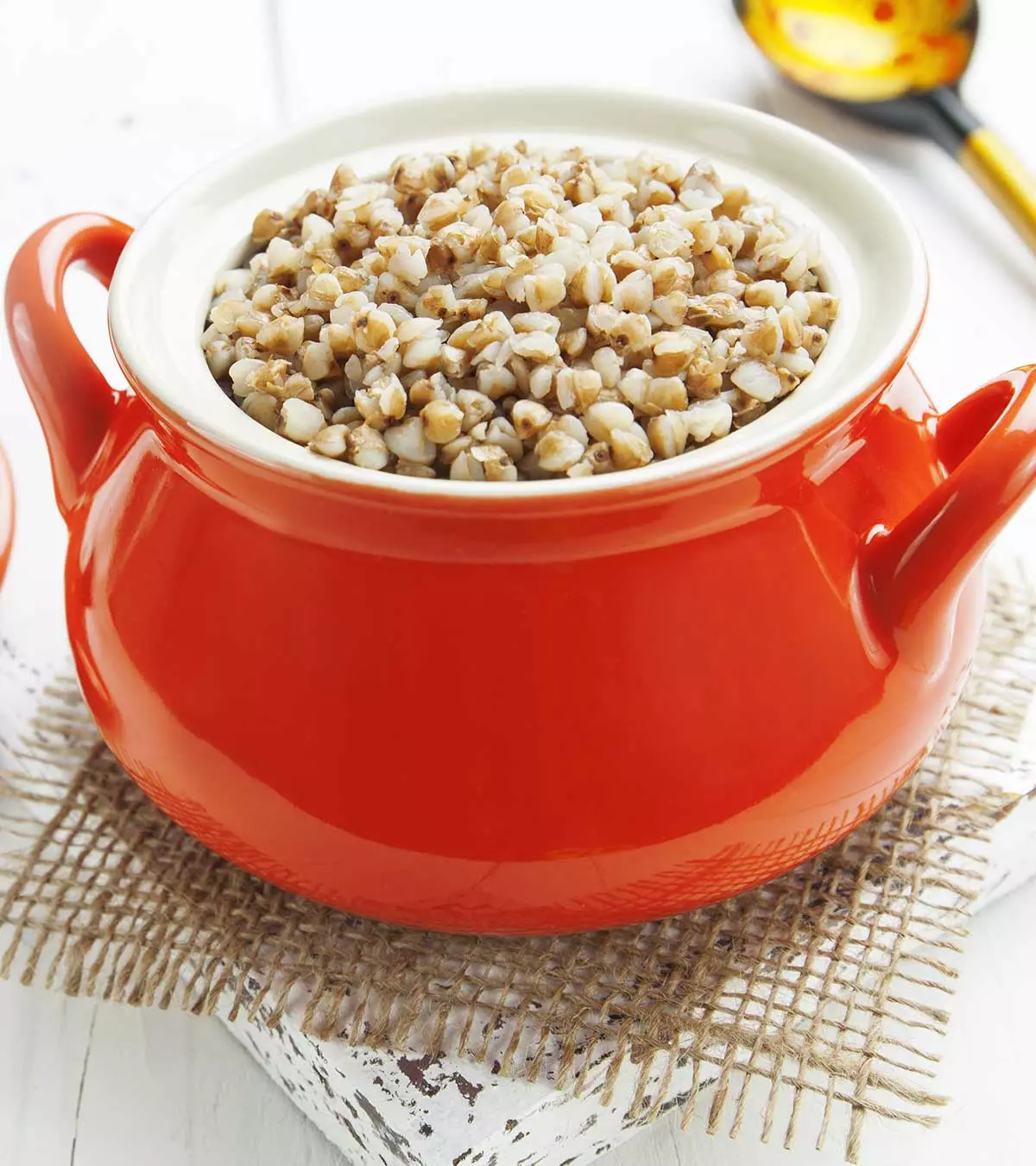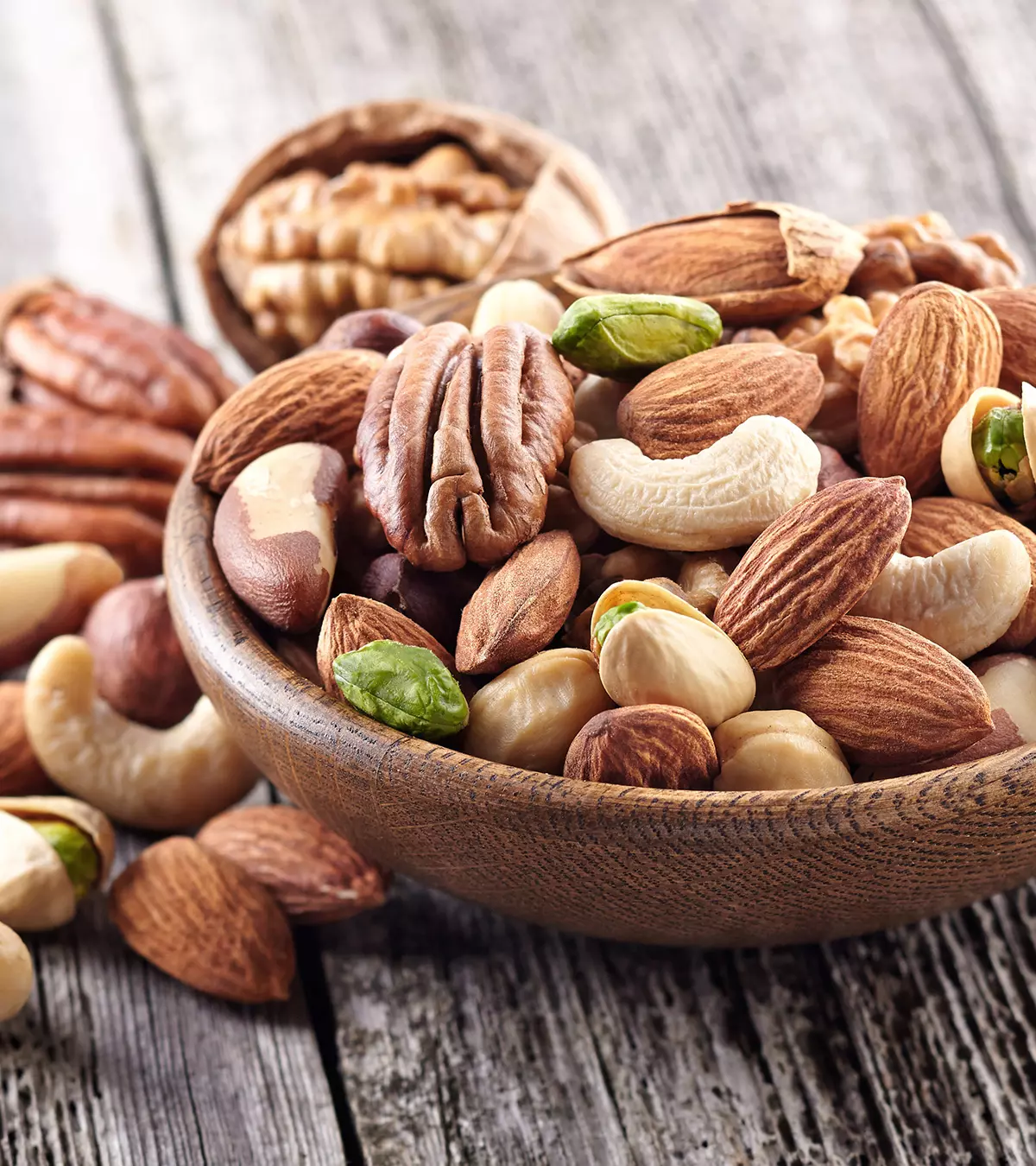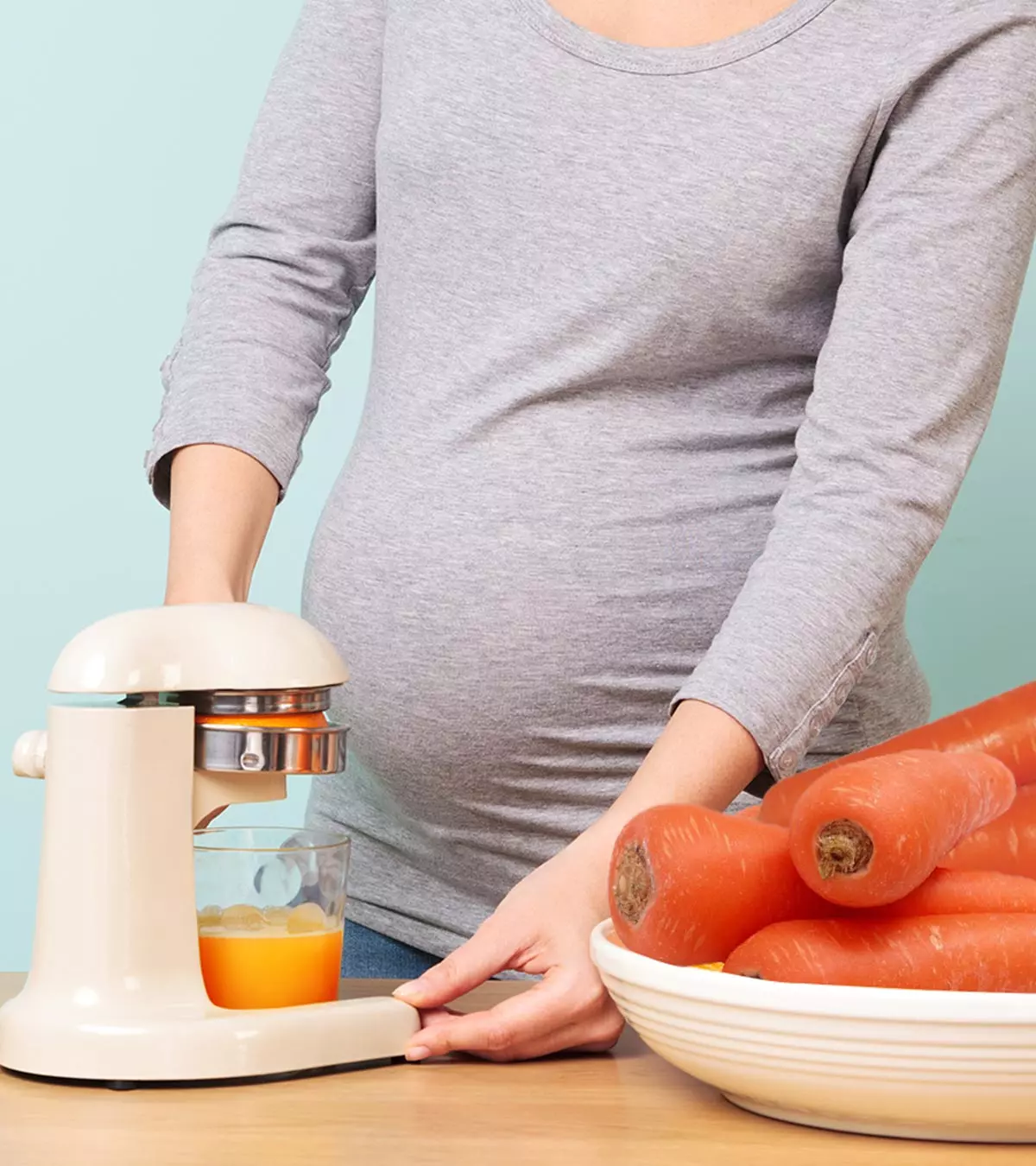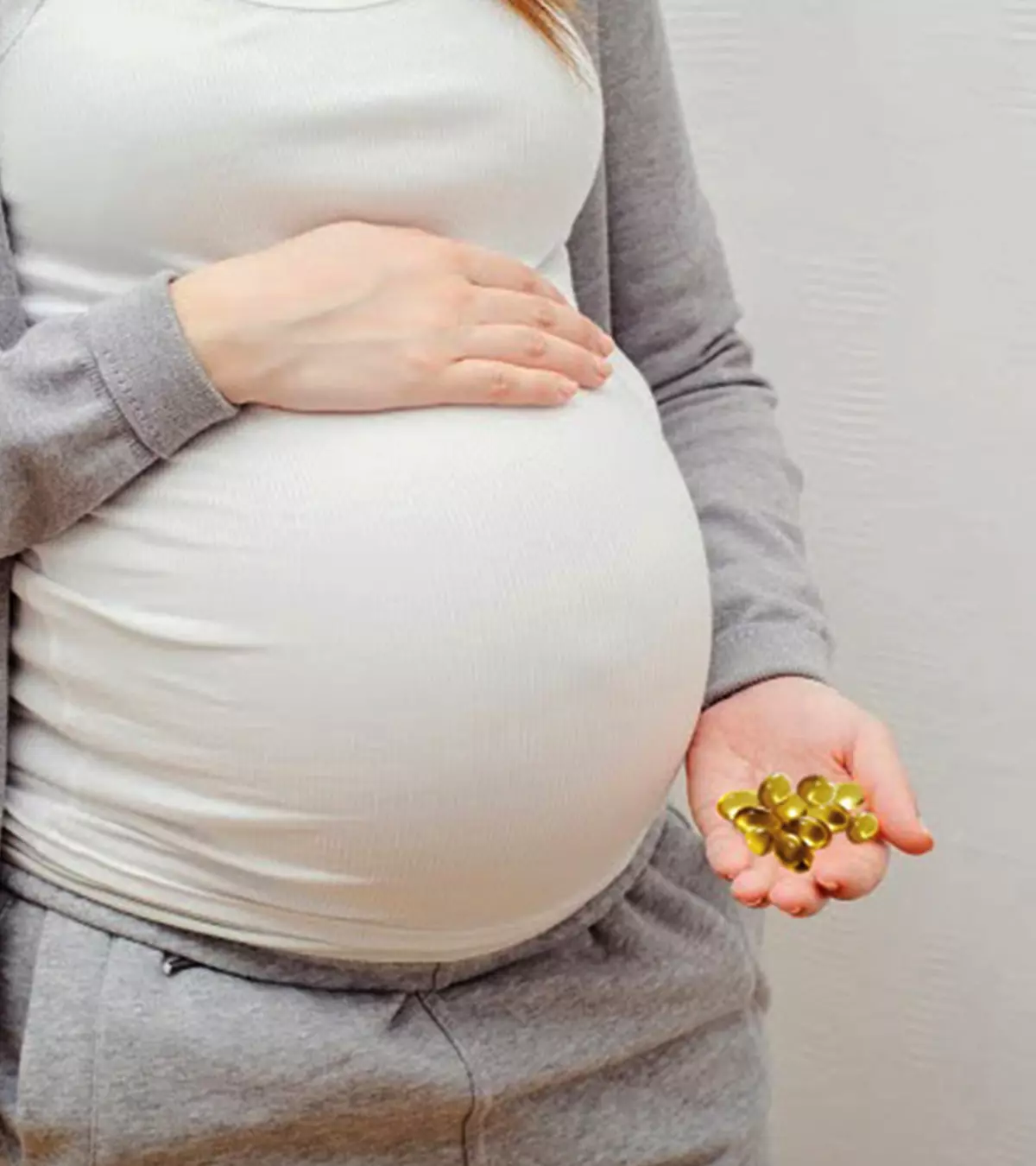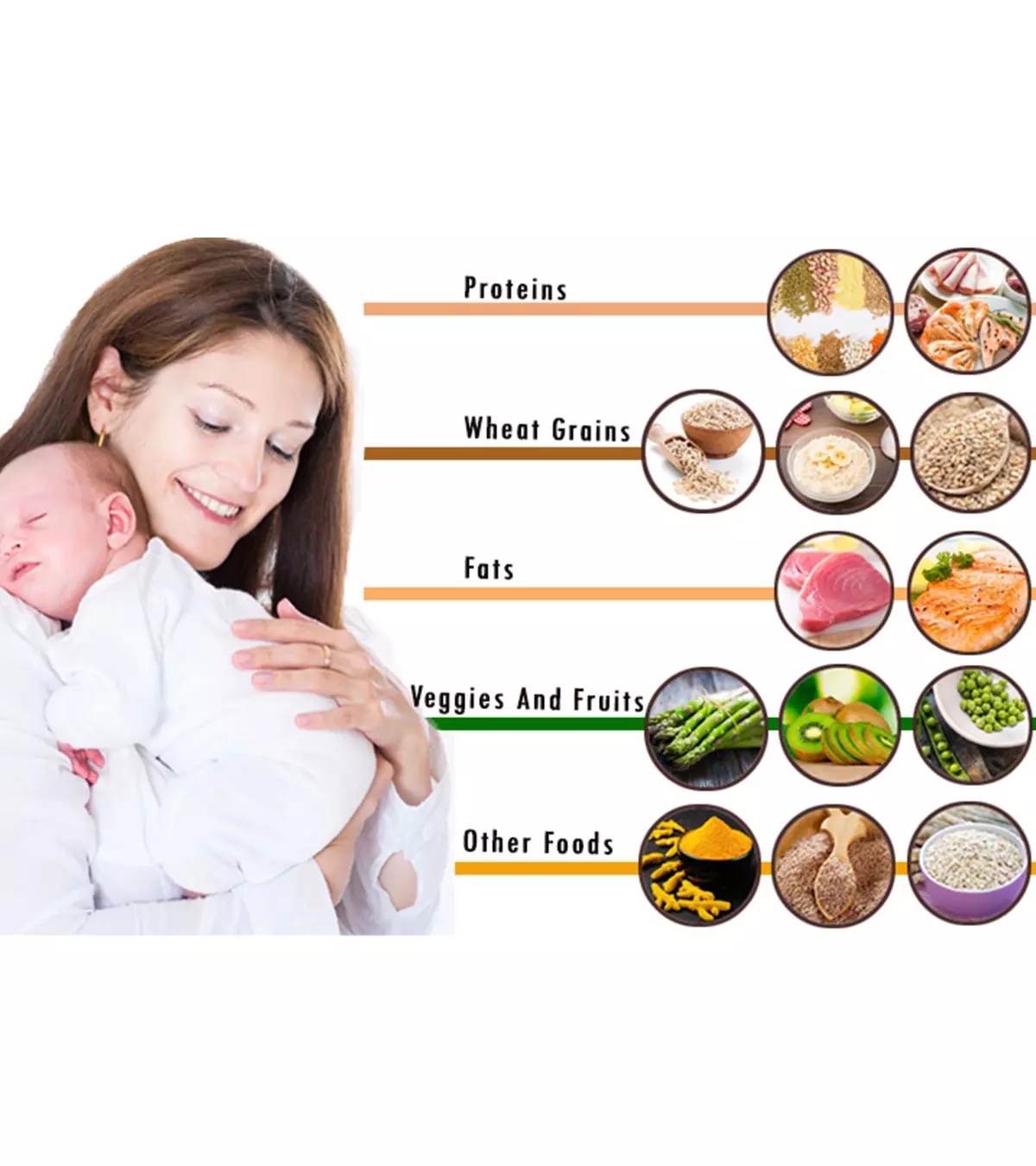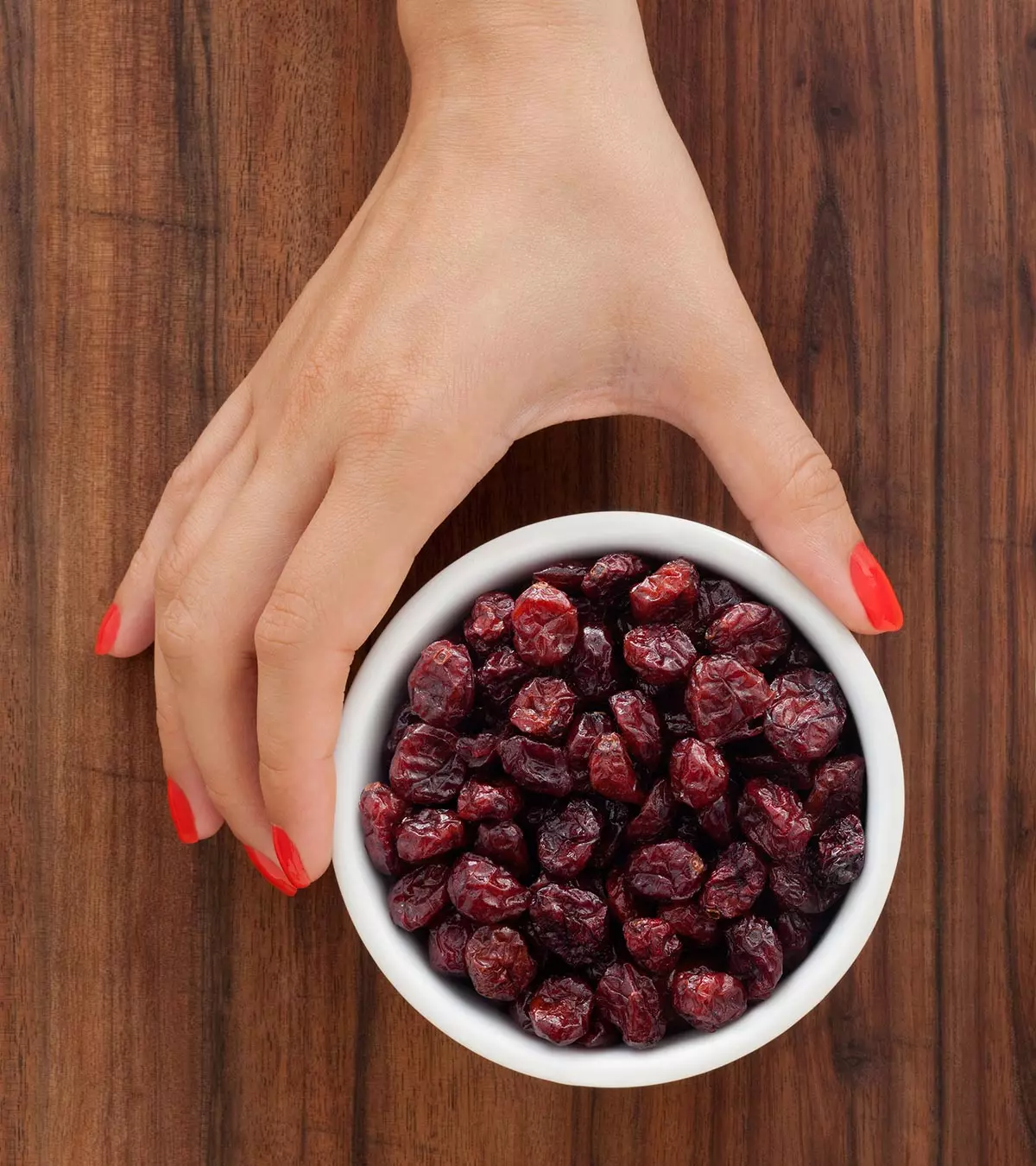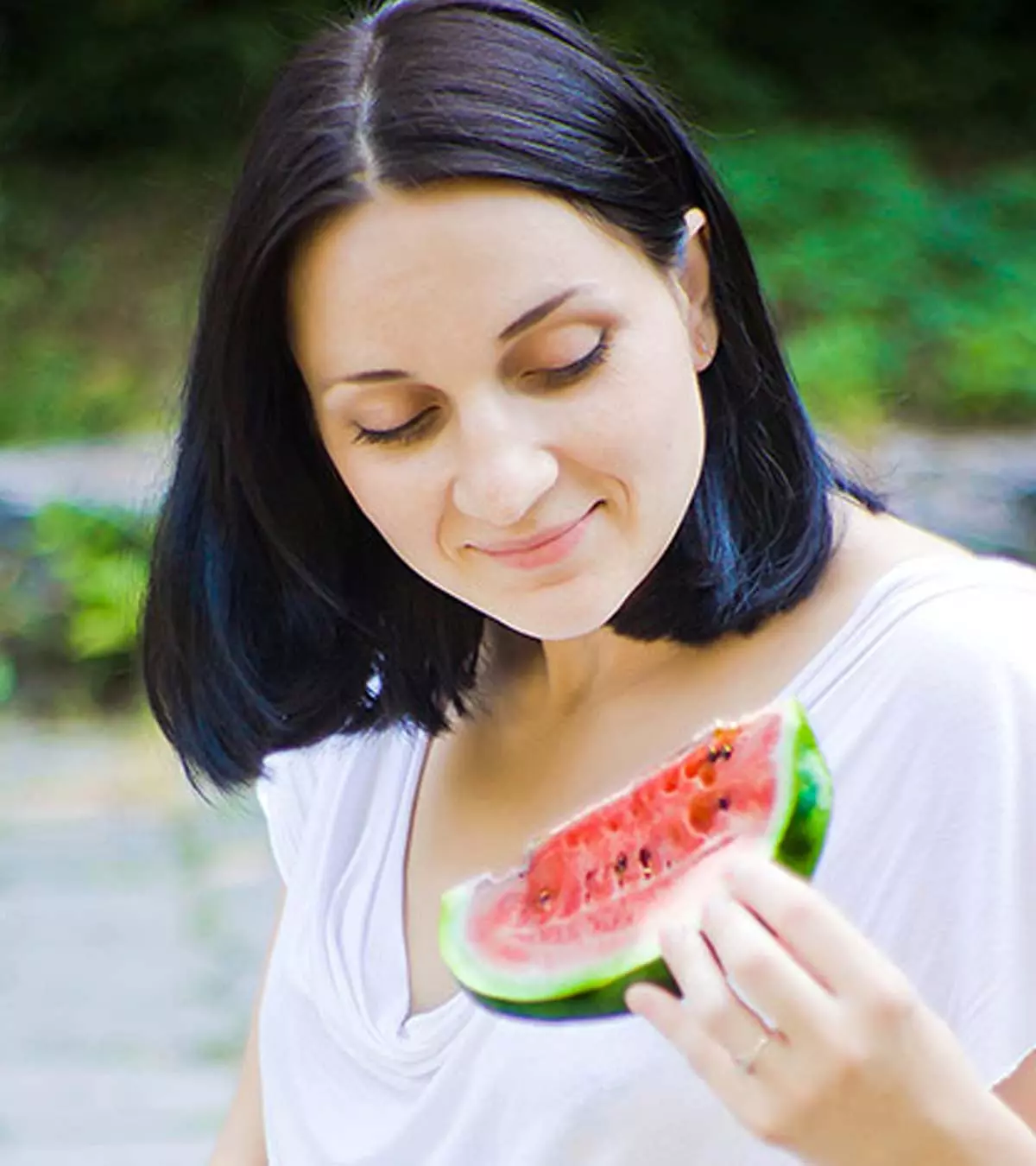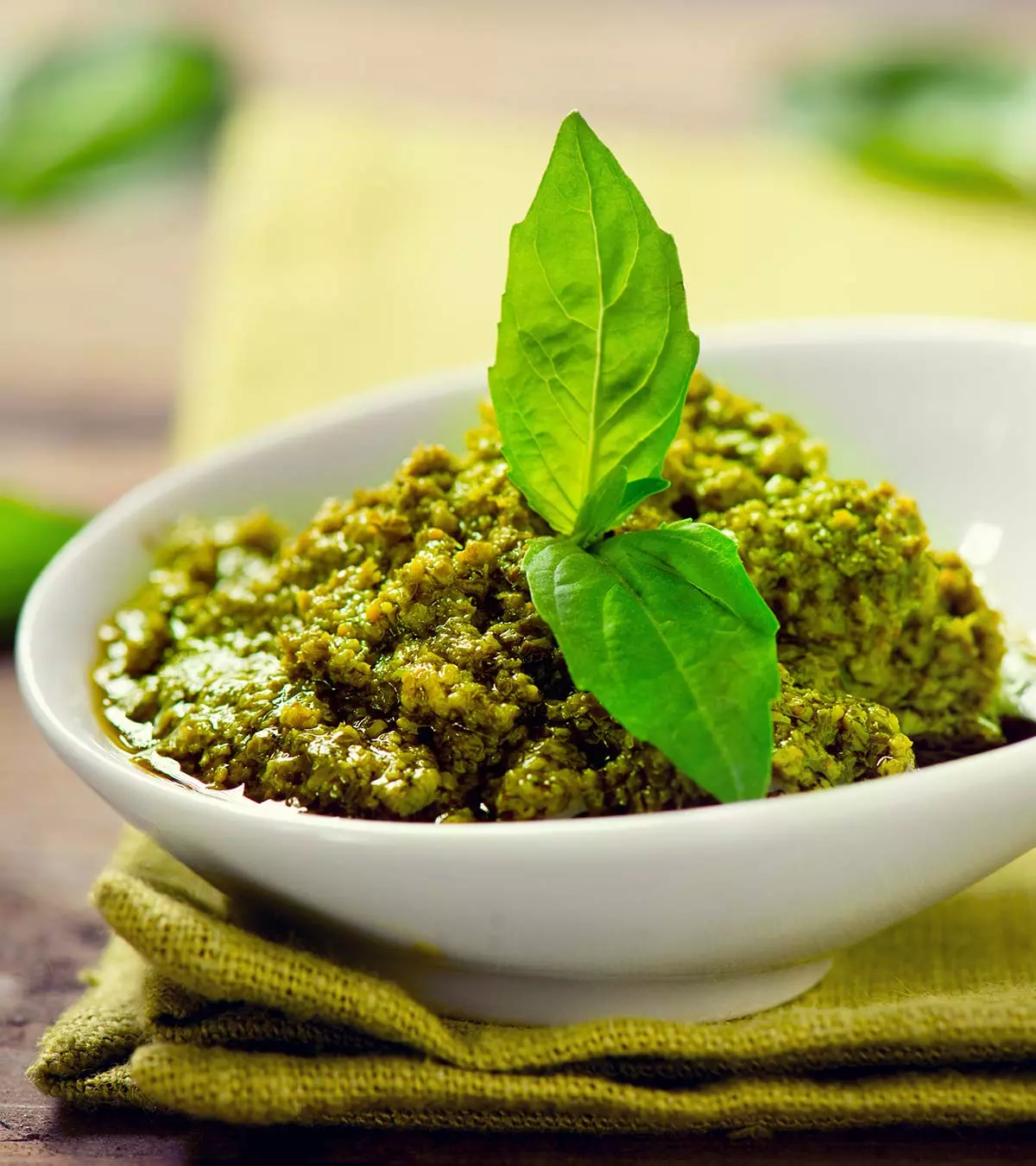
Image: ShutterStock

Pesto, a sauce from Italian cuisine, is prepared using a variety of nutritious ingredients. However, is it safe to have pesto during pregnancy? Consuming pesto sauce in moderation may be considered a healthy option for pregnant women. It may provide certain nutrients such as proteins, vitamins, and good fats to meet the increased daily requirements during pregnancy. Additionally, it is effective in preventing food cravings. This post tells you in detail about pesto sauce, including its safety and benefits when incorporated into your pregnancy diet.
Key Pointers
- Pesto supplies essential nutrients like proteins, vitamins, and beneficial fats that can satisfy increased dietary requirements during pregnancy.
- Pregnant women can consume pesto in moderation, after seeking approval from a doctor.
- Pesto is low in calories and effective in preventing food cravings.
- The health benefits of pesto for pregnant women include curing an upset stomach and strengthening bones and joints.
What Is Pesto?
Pesto is an Italian sauce originating from Genoa in Liguria, northern Italy. Typically, pesto comprises basil, a considerable amount of garlic, European pine nuts, cheese, and olive oil. People consider the sauce as a wholesome meal since it includes various ingredients. All these ingredients are good for a healthy pregnancy (1).
Is It Safe To Consume Pesto During Pregnancy?

Image: Shutterstock
Well, yes! It is safe to consume pesto when pregnant. However, ensure that you don’t overdo it. We understand that the tasty sauce is quite tempting, but overconsumption can lead to complications for you and your baby. As every pregnancy is different, you should consult your doctor or nutritionist before eating pesto while pregnant.
To avoid exposure to preservatives and other potentially harmful ingredients, it is recommended to use homemade pesto instead of store-bought versions during pregnancy. Also, when preparing the sauce at home, it is important to thoroughly wash basil leaves as they may carry harmful bacteria. The garlic and basil in pesto give it medicinal properties and make it easy for you to enjoy the sauce during pregnancy (2).
Health Benefits Of Eating Pesto During Pregnancy
1. Cures upset stomach:
Basil is a major ingredient of pesto. Basil is what lends the sauce its fragrance. Basil treats stomach upsets and is a herbal remedy. Basil also provides rich amounts of minerals and vitamins that include iron, beta-carotene, vitamin A, and vitamin K. Also, the presence of basil in the pesto ensures that the sauce has a high nutritional density and low cholesterol (3).
2. Provides appropriate proteins:
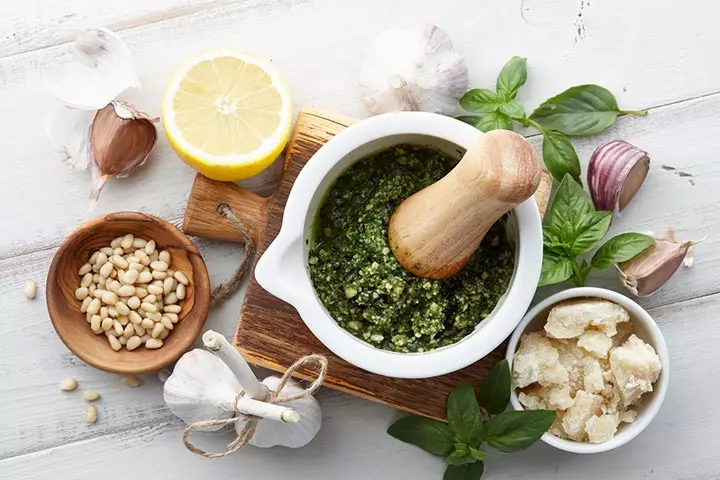
Image: Shutterstock
Pesto contains pine nuts and cheese, which are rich in proteins. Proteins regulate your appetite during pregnancy and keep you full. Eating proteins ensure that you follow a proper diet and don’t gain excess weight. Also, proteins help you burn fat and replace it with muscle mass. Proteins ensure good growth and development of the fetus as well as you enjoy a healthy pregnancy. Pine nuts are also an excellent source of essential fatty acids that you need during pregnancy (4).
 Nutritional fact
Nutritional fact3. Low in calories:
Even though pesto is rich in nutrients and vitamins, the sauce is considerably low in calories. The low-calorie content of pesto regulates your weight and prevents obesity during pregnancy (5).
4. Strengthens bones and joints:

Image: Shutterstock
You need to have healthy and strong bones and joints during pregnancy. Pine nuts in the pesto are a good source of vitamin D, which aids in strengthening your bones and joints during pregnancy. Also, pine nuts are rich in vitamin C, which boosts your energy levels and makes you immune to several infections during pregnancy. Vitamin A in the pine nuts helps enhance vision and skin quality during pregnancy (6).
5. Provides monounsaturated fats:
Pesto comprises olive oil, which is rich in monounsaturated fats. Monounsaturated fats are good for your heart. Eating pesto during pregnancy helps enhance your cardiovascular health, increase arterial wall strength, and clear the arteries. Also, the sauce regulates your blood glucose levels. Olive oil also lowers bad (LDL) cholesterol levels and increases good (HDL) cholesterol levels (7).
Is It Safe To Consume Jarred Pesto Sauce During Pregnancy?
It can be safe to consume jarred pesto sauce during pregnancy if you take adequate precautions, such as the ones mentioned below.
- Opt for reputable brands known for their quality and safety standards.
- Ensure that dairy products used in the pesto are pasteurized to minimize the risk of ingesting harmful bacteria.
- Carefully check the ingredient list for the mention of any nuts, as allergies can be a concern.
Keep in mind that some jarred pesto sauces may contain preservatives. As with any other food during pregnancy, balance and variety are key to a healthy diet. If you have specific concerns or dietary restrictions, consult your healthcare provider for personalized advice on making safe food choices.
Pesto sauce is a versatile flavor enhancer that can be utilized in various ways, including as a dip, spread, or salad dressing, and it’s particularly renowned for its pairing with pasta. So, if you’re craving some pasta during pregnancy, homemade pasta with pesto sauce can be a nutritious addition to a well-balanced pregnancy diet.
Frequently Asked Questions
1. Is pesto good for fertility?
A basic pesto recipe will include basil, pine nuts, garlic, and olive oil, which are good for fertility. Each and every ingredient has nutrition. However, remember that everything should be in moderation.
2. Is pesto ok for gestational diabetes?
Yes. Pesto can be beneficial for women who have gestational diabetes. Studies show that garlic can reduce fasting blood sugar levels and prediabetes symptoms, while pine nuts may benefit insulin resistance (4) (5). Extra virgin olive oil can prevent gestational diabetes in women (6). Also, basil extract is known to reduce blood glucose levels (7).
3. What precautions should I take when eating pesto during pregnancy?
Check that none of the ingredients, like nuts or cheese, could trigger an allergy. If concerned about any ingredients, consult your doctor. When making pesto at home, use fresh, high-quality ingredients and avoid unpasteurized cheese. Refrigerate pesto and consume it promptly to ensure freshness and safety.
Fresh pesto sauce contains healthy fats and leafy greens and can improve the taste and nutritional quotient of most dishes. Pesto sauce also has multiple health benefits, such as improved bone and joint strength and improved digestion. However, it should be consumed in moderation. When making pesto sauce, ensure you wash the basil leaves well and make it in small batches so you do not end up consuming stale sauce. Finally, store the leftover sauce in clean containers and at the right temperature to maintain freshness.
Infographic: Why Pesto Is Recommended For Pregnant Women
Pesto is a reliable source of various nutrients that are beneficial for the entire body. Pregnant women must add pesto to their diets to reap its wholesome benefits. Scroll through the infographic below to discover more reasons to consume pesto during pregnancy.

Illustration: Momjunction Design Team
Illustration: Wonderful Health Benefits Of Pesto During Pregnancy
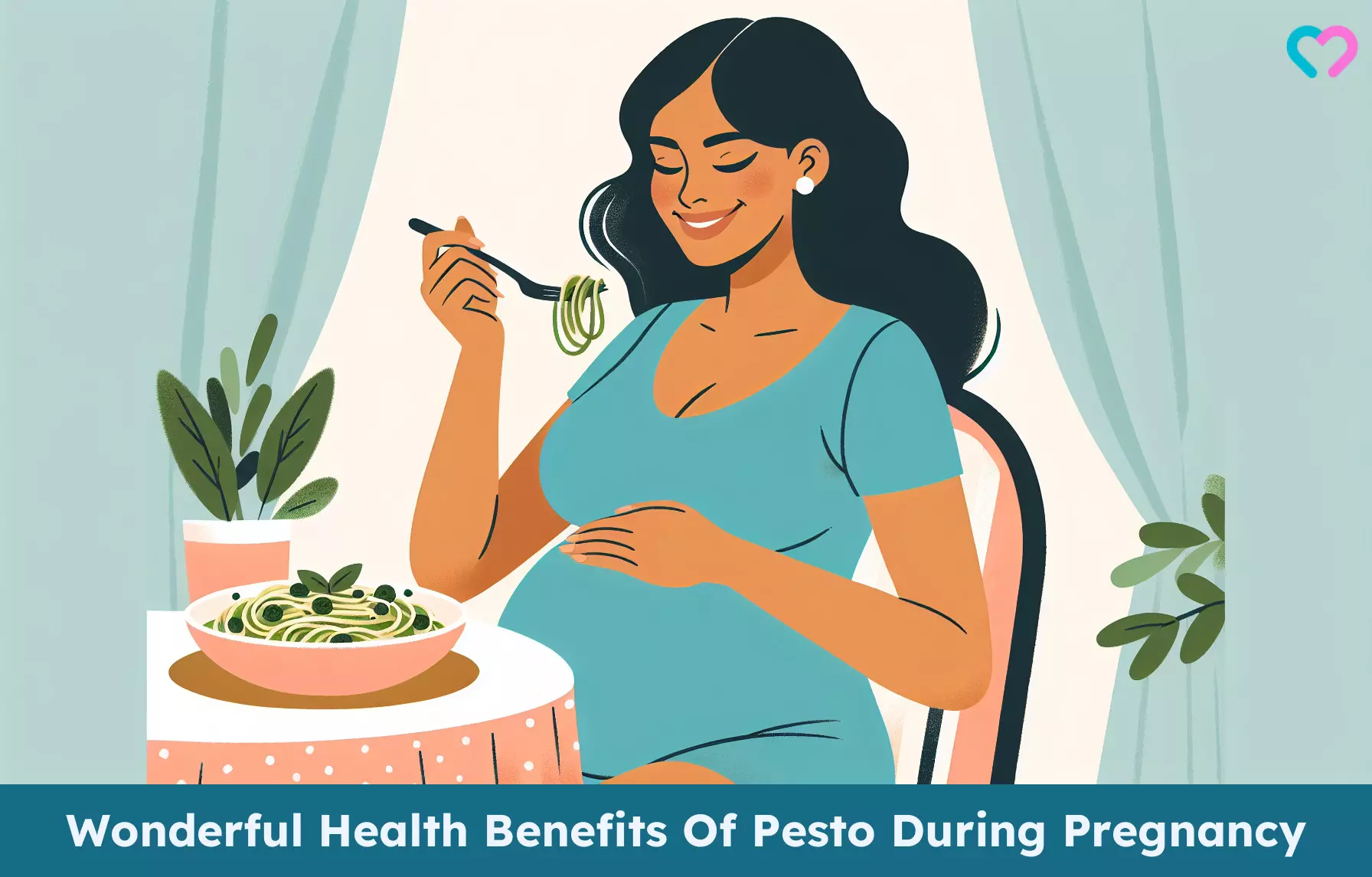
Image: Dalle E/MomJunction Design Team
References
- Salim Ali Banihani; (2017); Semen quality as affected by olive oil.
https://www.tandfonline.com/doi/full/10.1080/10942912.2017.1357044 - Five super foods to boost your fertility.
https://www.nutritionist-resource.org.uk/articles/five-super-foods-to-boost-your-fertility - Roberta V. L. Martins et al; (2025); Natural Products as Protective Agents for Male Fertility.
https://www.mdpi.com/2673-6411/1/3/11 - Farnaz Faroughi et al; (2018); Effects of Garlic Pill on Blood Glucose Level in Borderline Gestational Diabetes Mellitus: A Randomized Controlled Trial.
https://www.researchgate.net/publication/324966057_Effects_of_Garlic_Pill_on_Blood_Glucose_Level_in_Borderline_Gestational_Diabetes_Mellitus_A_Randomized_Controlled_Trial - Sung Keun Park et al; (2025); The association between insulin resistance and the consumption of nut including peanut pine nut and almonds in working-aged Korean population.
https://peanut-institute.com/research-library/the-association-between-insulin-resistance-and-the-consumption-of-nut-including-peanut-pine-nut-and-almonds-in-working-aged-korean-population/ - Li’na Zhao et al; (2025); Does a MediDiet With Additional Extra Virgin Olive Oil and Pistachios Reduce the Incidence of Gestational Diabetes?
https://www.endocrinepractice.org/article/S1530-891X(21)01181-2/fulltext - Melissa Syafrina et al; (2025); Anti-diabetic Effects of Basil Extract (Ocimum Basilicum) towards Hyeperglycemia in Gestational Diabetes Mellitus.
https://www.semanticscholar.org/paper/Anti-diabetic-Effects-of-Basil-Extract-(Ocimum-in-Syafrina-Ali/3b1b363e31f95d146bc4173b65874b3cffb86b55 - Traditional basil pesto.
https://fdc.nal.usda.gov/fdc-app.html#/food-details/504304/nutrients - Patrick Burke et al., (2016); Outbreak of Foodborne Botulism Associated with Improperly Jarred Pesto — Ohio and California, 2014.
https://www.cdc.gov/mmwr/volumes/65/wr/mm6507a2.htm - Food Safety Focus.
https://www.cfs.gov.hk/english/multimedia/multimedia_pub/multimedia_pub_fsf_23_04.html
Community Experiences
Join the conversation and become a part of our nurturing community! Share your stories, experiences, and insights to connect with fellow parents.
Read full bio of Shivani Sikri
Read full bio of Ria Saha
Read full bio of Swati Patwal
Read full bio of Lorraine Teron

 Be watchful
Be watchful






